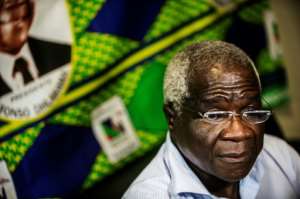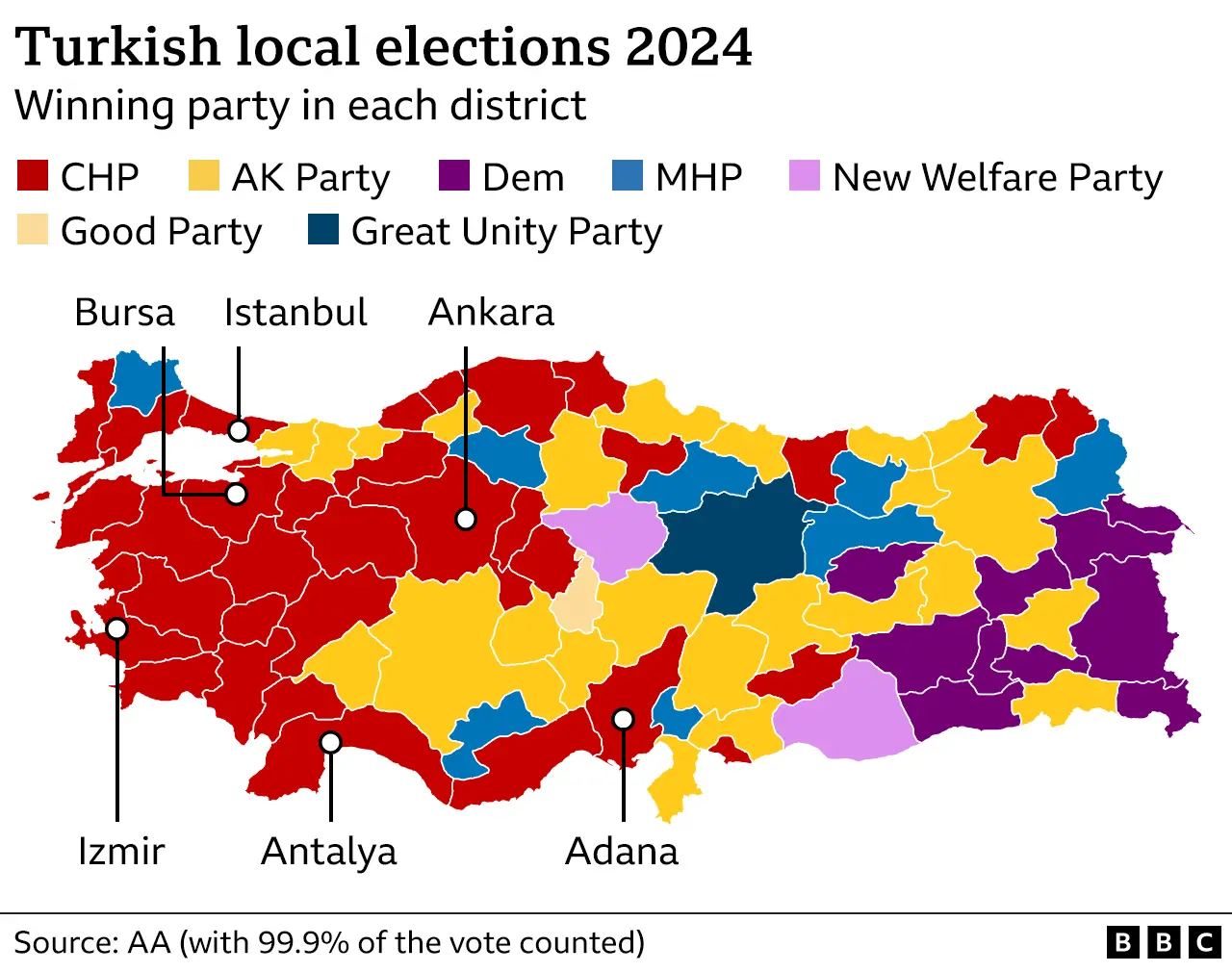
Mozambique holds local elections Wednesday in a vote that could test progress in the country's peace talks after the ruling Frelimo party was accused of violence and intimidation during the campaign.
The main opposition Renamo party, which has maintained an armed wing since the end of the country's civil war, is running in the municipal polls for the first time in 10 years.
Renamo fought a brutal 16-year civil war against the Marxist-inspired Frelimo government that devastated the economy and left one million people dead. When the war ended in 1992, the group soon began participating in elections.
In 2013, a wave of fresh violence erupted between Renamo rebels and government troops, raising fears of a return to civil war. But three years later, the party declared a truce and opened fresh peace talks with the government.
It is now hoping for a breakthrough ahead of next year's general election, but recent electoral reforms could leave the opposition vote split.
The 13-day election campaign ended on Sunday after outbreaks of violence between rival party supporters.
Police said 26 people had been arrested in the campaign, almost all of them reportedly supporters of Renamo.
Ahead of the vote, a police officer, who is also a local Frelimo leader, allegedly shot a rival Renamo supporter in Tete province ahead of the vote. But nobody has been arrested.
Retaliation fears
 Ossufo Momade, acting leader of Mozambique's Renamo party, has accused the police of inaction in the face of political intimidation ahead of the vote. By Adrien BARBIER (AFP/File)
Ossufo Momade, acting leader of Mozambique's Renamo party, has accused the police of inaction in the face of political intimidation ahead of the vote. By Adrien BARBIER (AFP/File) Renamo supporters say they have faced intimidation and assaults during the campaign, raising tensions ahead of the ballot.
"Our members and sympathisers are asking for the party's leadership (to) intervene in their defence since the police do nothing," Renamo's acting leader Ossufo Momade last week.
Speaking to AFP, Domingos do Rosario, a politics professor at Eduardo Mondlane University in Maputo, warned that the party felt under attack and could well retaliate.
"Renamo thinks it is being persecuted and may act accordingly to defend itself," he told AFP.
On Wednesday, the vote will be held in Mozambique's 53 municipalities, 49 of which are currently governed by Frelimo.
The four other municipalities -- among them the cities of Beira, Nampula and Quelimane -- were won by the second opposition MDM party in the last elections.
Civil war legacy
"All the apparatus of the state will have been put into action to make sure the elections are won by Frelimo. If that happens, the level of violence will increase," Do Rosario told AFP.
 The local elections will be a test for the country's peace talks, which were set in motion by the late Renamo leader Afonso Dhlakama, who died unexpectedly in May. By GIANLUIGI GUERCIA (AFP/File)
The local elections will be a test for the country's peace talks, which were set in motion by the late Renamo leader Afonso Dhlakama, who died unexpectedly in May. By GIANLUIGI GUERCIA (AFP/File) But he predicted that the peace process would stay on track ahead of the 2019 general election.
President Filipe Nyusi and Momade have recently made progress on the disarmament and integration of former Renamo rebels into the police and army -- which had been a key sticking point for the peace talks.
Since 2016, the government has been in talks with Renamo, although the group's leader Afonso Dhlakama -- who played a key role in opening negotiations with Nyusi -- died in May from a suspected heart attack.
"The Mozambican authorities should... address immediately the allegations that security forces are intimidating and attacking opposition supporters," Zenaida Machado, a researcher for Human Rights Watch, told AFP.
"Failing to do so may lead to an environment of fear, distrust and tension on voting day, which could have a negative impact."
Parliament approved new electoral laws in July that means that a simple or relative majority is sufficient for a candidate to win election.
Previously, an absolute majority of over 50 percent of votes was needed.
"The new legislation was strategically prepared to benefit Frelimo," said Adriano Nuvunga, also a professor at Eduardo Mondlane University.
"Renamo and MDM are going to run for the same segment of electorate. It is enough for Frelimo to get 40 percent of the votes to win."
As well as the internal political tensions, Mozambique has been rocked over the last year by the emergence of an Islamist insurgency in the northern province of Cabo Delgado, which has rich off-shore gas deposits.
Scores of civilians and police have been killed in militant assaults despite a security crackdown.
Read Full Story








Facebook
Twitter
Pinterest
Instagram
Google+
YouTube
LinkedIn
RSS